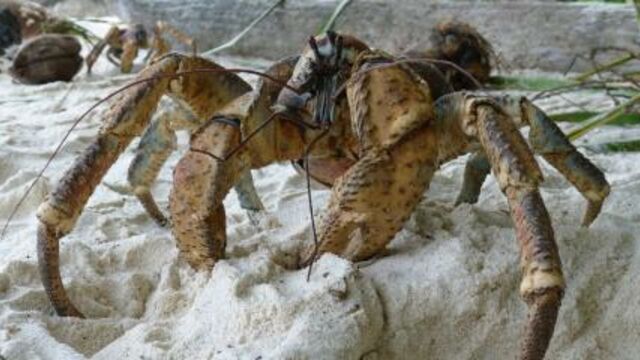One Seagull Got Quite the Surprise When It Tried to Attack a Coconut Crab

On a small island in the Indian Ocean, a biologist filmed a coconut crab approach a seagull that was dozing on a low branch and made it its next meal.
When you think about crabs, you probably think of the relatively harmless animals that wander about clicking their large claws without doing much harm to anyone. However, you might change your mind when you see the scene filmed by biologist Mark Laidre from Dartmouth College in the United States.
Discover our latest podcast
This specialist was conducting a study on a very strange animal: the coconut crab (Birgus Latro). Able to grow up to a meter wide and weigh up to four kilograms, this animal has been awarded the title of being the largest land-dwelling arthropod in the world. They are found on islands in the Pacific and Indian oceans.
More under this adMore under this adAnd yet, it’s not actually a crab so to speak, but rather belongs to the hermit crab family and can do some quite impressive things. It is able to climb trees that are several meters tall and break coconuts using its powerful pincers in order to eat the insides.

Night hunters
The behaviour that Laidreobserved was actually quite unexpected and shocking for Mark Laidre. In the middle of the night when he was on the Chagos archipelago, he stumbled upon a coconut crab going after a seabird, a red-footed booby, that was resting on a low branch. The arthropod grabbed the bird’s wing with one of its pincers before restraining it.
Despite the bird’s best efforts to fight back with its beak, it couldn’t and was quickly defeated. As if this scene wasn’t disturbing enough, about twenty minutes later, five other crabs arrived to compete for the feast while the bird was still alive.
More under this adMore under this ad‘As the booby lay paralyzed, the crabs fought, eventually tearing the bird apart,’ recalled Mark Laidre who revealed the video in a study published by the journal Frontiers in Ecology and the Environment.